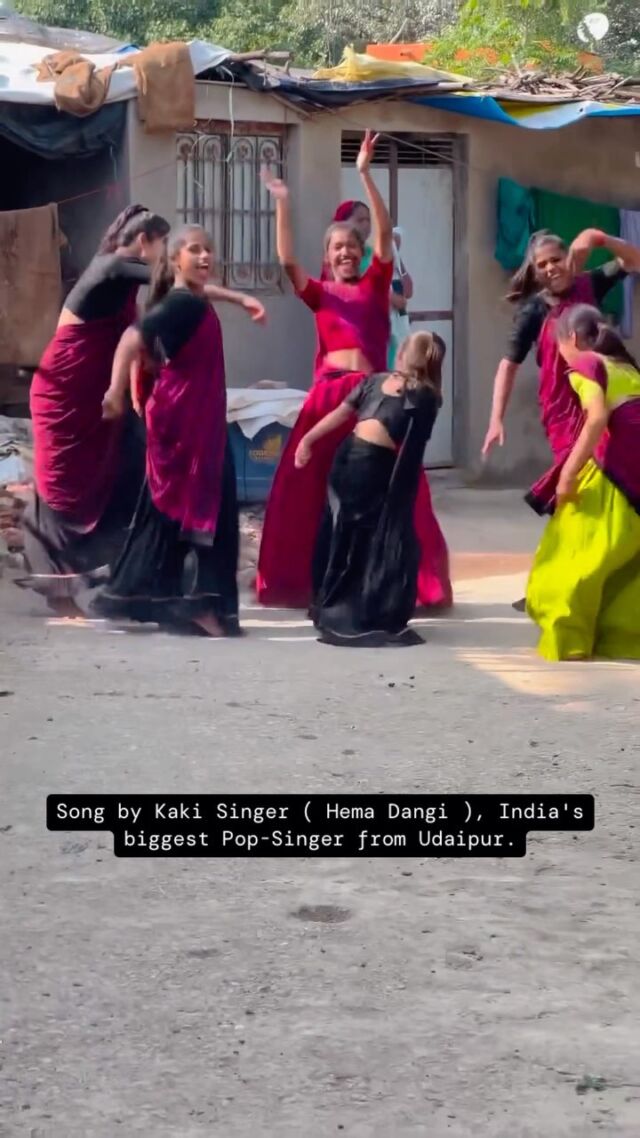A still from In The Belly Of A Tiger.
New Delhi:
Located in the liminal space between the stark and the surreal, In The Belly Of A Tiger, an Indo-US-Chinese co-production that premiered on Sunday at the 74th Berlinale, plays out in a tangible world – a North Indian village battered by poverty and exploitation. It is, however, informed with narrative and stylistic elements that lend the film a distinct resonance.
In The Belly Of A Tiger revolves around a landless farmer forced by capitalism at its most exploitative to contemplate a desperate measure in the hope of saving his impoverished family – his wife, son and two granddaughters. But it isn’t only about selfless sacrifice or the deliverance that might result from that act. There is infinitely more to the film.
In his sophomore venture, director-cinematographer Siddartha Jatla (Love and Shukla) travels to a village on the edge of a forest and delves into the dreams and despair of the dispossessed while spotlighting their tenacity, no matter how tenuous it is.
In The Belly Of A Tigeralternates between the lyrical and the profoundly empathetic as it explores the plight of a community of debt-ridden farmers robbed of their land and precariously caught between a maneater on the prowl and a brick factory that runs on their blood and sweat. It is hard to tell which one is worse.
Working with a screenplay he wrote with Amanda Mooney, Jatla crafts an incisive and moving portrait of rural distress in which the hapless victims of relentless systemic violence look inwards and dwell upon their pasts – their last resort – in their search for a way out of the gloom that envelopes their lives.
A farming family is forced out of the land that they once cultivated. Their debts are now beyond manageable limits and agriculture isn’t a viable proposition anymore. The a dark void stares them in the face but that does not stop them from dreaming of what they have lost and what they might regain if they hang in there.
Bhagole’s village – it remains unnamed probably to suggest that this is a universal story – has to contend with a tiger that denotes both danger and salvation. The dread that the animal evokes brings with it the prospect of receiving a substantial government compensation if a farmer is mauled by a tiger while tilling his field.
When matters reach a head, Bhagole (Lawrence Francis), an old man, and his wife Prabhata (Prabhata) fall back on their dreams and memories. They retreat into a world of myths, fantasies and religious faith. They cling to their deep love for each other and their empathy for others who face contempt and mistreatment from forces that control their fate.
Such is their lot that escape from the hell-hole is impossible. But Bhagole and his son Saharsh (Sorabh Jaiswar), each in his own way, do not sink into a dehumanized state. Life is hard. Warding off despondency isn’t easy but the two men look for happiness in little things – these hinge mostly on Saharsh’s daughters – that remind them of their humanity.
In one telling sequence, Bhagole and his younger granddaughter Chatkila walk around the village vegetable market. They cannot afford to buy anything. Cut to Chatkila feigning to cook for the family. Dry leaves stand in for chicken legs. Bhagole plays along. That is all that the old man can do.
Bhagole’s own dreams stem from his relationship with his wife and the village’s intrinsic faith in Lord Vishnu – who appears in a stage play that punctuates the film – and the lotus that sprang forth from his belly, signifying the beginning of all creation. Saharsh seeks solace in remembrances of his dead wife, whose appearances in his visions deliver the only dashes of colour to a bleak life.
When the film opens, we see Bhagole and his family returning from the city to their village empty-handed. Saharsh, the audience learns, did find a job in the city only to be left in the lurch by a deceitful contractor.
Saharsh is a docile man. He bears witness in stony silence to the injustice perpetrated at the brick factory where he now works. Not that he is bereft of emotions. In an early scene, an elderly village woman wishes Saharsh had more gumption. Later, his father insists that being soft-hearted is no weakness. It is your strength, he says to his son.
Another villager, a farmer who is palpably older and more weather-beaten than Bhagole, laments to Saharsh that he is unable to locate his farm. He asks: Do you know the way to my land? Saharsh has no answer. He gives the ‘lost’ farmer some money and then goes to the village’s sole liquor shop and buys himself a bottle of a local brew.
In The Belly Of A Tigerjuxtaposes hopeless resignation and striking human resilience, a conjunction heightened by a gently evocative background score provided by In the Mood for Love composer Shigeru Umebayashi. The farmers-turned-factory workers – one of them is a woman who is pregnant with her third child – have to keep going in the face of inhuman conditions and low remunerations.
The mingling that the film seeks between the mundane and the mythological may seem a touch tricky at first flush. How can anything, even faith in the Almighty, promise liberation when one is faced with a system that revels in perpetuating poverty and exploiting the disadvantaged in order to register profits?
Bhagole and Saharsh’s dreams and beliefs can at best be a window that opens out into a space where the harsh realities of life are obscured. To its credit, In The Belly Of A Tiger does not suggest otherwise. What it does is hold up the faith that the marginalized have in the power of the divine, something they accept as unquestionable, as a contrast to the shocking insensitivity of the powerful.
In the face of perpetual penury, the central characters in In The Belly Of A Tiger imagine what life could have been and could be. But the film does nothing to suggest that dreams can actually change anything at all in the real world. There are no saviours here, only false gods. Jatla finds a compellingly innovative idiom to convey the essence of that truism.
Cast:
Francis Lawrence, Sorabh Jaiswar, Poonam Tiwari
Director:
Jatla Siddartha
Source link








![Growing up learning Indian Classical Music, I’ve developed a deep appreciation for diverse musical genres, and techno is definitely one that has captured my interest. Got inspired to write this track by blending the beautiful melodies of Hindustani classical, particularly Raag Bhairav, with the beats of techno. Excited to share this fusion with you all!
Music by @miladzki
Check it out and vibe with me! 🎶✨
[ techno, newmusic, fusion, indianclassicalmusic, techno, music, kakisinger ]](https://talentsofworld.com/wp-content/uploads/wp-social-ninja/instagram/9xm.tv/18327743320185528_full.jpg)
![Listen to this Version of Dil Kho Gaya
Original Song From the Movie Dil.
Anand-Milind, Udit Narayan, Anuradha Paudwal sung this song
Music by Anand-Milind
Hope you guys like this Rendition of the Classic Song by Kaki Singer.
Like, Share & Comment.
[ Dil, Dil kho Gaya, old songs, Classic Bollywood, old song covers, retro songs, indian old songs, old hindi songs, melodies, kaki singer, Indian singers ]](https://talentsofworld.com/wp-content/uploads/wp-social-ninja/instagram/9xm.tv/17999564600299237_full.jpg)





















































Wow, amazing blog format! How long have you ever been running a blog for?
you make running a blog look easy. The overall glance of your site is great, as smartly
as the content! You can see similar: sklep internetowy and here sklep online
I am really impressed with your writing skills and also with the layout on your
weblog. Is this a paid theme or did you modify it yourself?
Either way keep up the nice quality writing, it is rare to see a great blog like
this one these days. I saw similar here: sklep online and
also here: najlepszy sklep